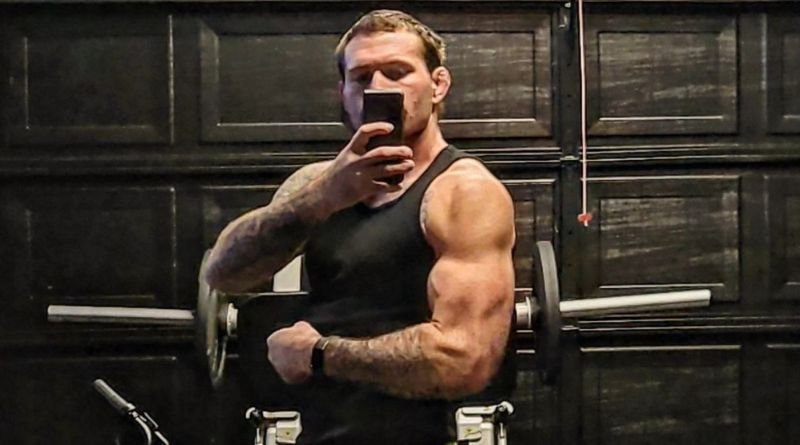Gordon Ryan is widely regarded as one of the most accomplished Brazilian Jiu-Jitsu (BJJ) practitioners of his generation. Known for his dominance in various prestigious competitions, including the ADCC (Abu Dhabi Combat Club) World Championship, Ryan has earned a reputation as a grappling phenom. However, alongside his extraordinary success on the mats, the topic of steroids and performance-enhancing drugs (PEDs) has been a subject of much debate. This article explores the relationship between Gordon Ryan and steroids, looking at the implications, controversies, and the broader conversation within the world of professional sports.
Table of Contents
Who is Gordon Ryan?
Gordon Ryan is an American professional grappler, best known for his achievements in Brazilian Jiu-Jitsu. Born in 1995, Ryan has risen to prominence in the sport with victories in major BJJ tournaments, including the ADCC World Championships, the IBJJF World Championship, and numerous other prestigious competitions. His aggressive submission game, particularly his expertise in leg locks, has set him apart from his peers.
Ryan is also known for his involvement in no-gi grappling, and many in the BJJ community regard him as the “king” of no-gi Jiu-Jitsu due to his unparalleled skill set and achievements.
The Steroid Controversy in Professional Sports
The use of steroids and other performance-enhancing drugs (PEDs) has long been a contentious issue in the world of professional sports. Athletes across many disciplines—whether in bodybuilding, powerlifting, mixed martial arts (MMA), or professional wrestling—have faced scrutiny and criticism for their alleged use of steroids.
Steroids, specifically anabolic steroids, are synthetic substances designed to mimic the effects of the male hormone testosterone. They can increase muscle mass, strength, and endurance, which is why they are often sought after by athletes looking to enhance their physical performance.
In grappling sports like BJJ, the question of steroid use has become more relevant as the sport has grown in both popularity and athleticism. While steroid use is strictly prohibited in most sports, the use of PEDs remains a concern, especially in sports that require both strength and endurance, such as BJJ, MMA, and wrestling.
Gordon Ryan and the Steroid Debate
While Gordon Ryan has never publicly admitted to using steroids, his physique and rapid rise to prominence have fueled rumors and speculation about potential PED use. It is important to note that Ryan has never been caught or tested positive for steroids, and there is no concrete evidence to suggest he has used any banned substances.
However, several factors have contributed to the steroid speculation surrounding him:
1. His Physique and Transformation
Ryan has undergone significant physical transformations throughout his career. Many observers have commented on his muscular build, particularly in the upper body and legs, which can be seen as unusual for a BJJ athlete, whose sport traditionally prioritizes flexibility and technique over pure strength. This dramatic physical change has led some to speculate that he may be using PEDs to achieve such gains.
2. The Competitive Landscape
As BJJ has evolved into a more physically demanding sport, some practitioners have turned to PEDs to keep up with the increasing level of competition. The rise of athletes with larger physiques, such as Gordon Ryan, has prompted discussions about the role of steroids in the sport.
3. Accusations from the MMA Community
There have been occasional rumors or accusations from outside the BJJ community, particularly within MMA circles, where steroid use is a known issue. These accusations often stem from comparisons between athletes’ physiques or performances, though no direct evidence has ever been presented regarding Ryan’s use of PEDs.
4. Ryan’s Stance on Steroids
Gordon Ryan has been vocal about the topic of steroids in sports. In interviews and social media posts, he has stated that he believes steroids are common in professional sports, but that he personally does not use them. Ryan has also made it clear that his success is due to a combination of hard work, talent, and intense training, rather than performance-enhancing substances.
Steroid Testing in Brazilian Jiu-Jitsu
While steroid testing is common in many sports, Brazilian Jiu-Jitsu has historically been less stringent when it comes to drug testing. Some tournaments, like the ADCC and IBJJF, have drug testing policies in place, but testing for steroids is not always rigorously enforced.
The absence of consistent and comprehensive drug testing in BJJ competitions has led to some athletes, especially at the highest levels, being suspected of using steroids or other performance enhancers. Without a level playing field in terms of drug testing, the conversation around PEDs in BJJ continues to be a gray area.
The Impact of Steroids in BJJ
Steroid use can have significant impacts on an athlete’s performance, as well as on their health. While steroids can increase muscle mass, strength, and endurance, they also come with a range of potential side effects, including:
- Hormonal Imbalances: Long-term steroid use can disrupt the body’s natural hormone production, leading to imbalances that may require medical intervention.
- Cardiovascular Issues: Steroid use has been linked to increased risks of heart disease, stroke, and high blood pressure.
- Psychological Effects: Steroids can sometimes lead to mood swings, aggression, and other psychological effects, collectively known as “roid rage.”
- Legal and Ethical Implications: The use of steroids in sports where they are banned can result in disqualification, fines, or damage to an athlete’s reputation.
FAQs about Gordon Ryan and Steroids
1. Has Gordon Ryan ever tested positive for steroids?
As of now, there is no public evidence or official report that Gordon Ryan has ever tested positive for steroids or any other performance-enhancing drugs.
2. What is Gordon Ryan’s stance on steroids?
Gordon Ryan has stated publicly that he does not use steroids and that his success is attributed to his hard work, skill development, and training regimen. However, he has also acknowledged that steroids are a common part of many professional sports.
3. Does BJJ test for steroids?
While some Brazilian Jiu-Jitsu tournaments, like the ADCC, have drug testing policies in place, steroid testing is not always strictly enforced across the sport. Testing varies depending on the event and organization.
4. Are steroids common in BJJ?
As the sport of Brazilian Jiu-Jitsu has become more competitive and physically demanding, there has been growing speculation about the use of steroids in BJJ. However, there is no conclusive data to support widespread steroid use in the sport.
5. Why do people suspect Gordon Ryan of using steroids?
The speculation about Gordon Ryan using steroids largely stems from his impressive physique and rapid physical transformation. However, without any direct evidence, such claims remain rumors.
6. What are the risks of steroid use in sports?
Steroid use can lead to a variety of health risks, including cardiovascular problems, hormonal imbalances, liver damage, and psychological side effects. Additionally, steroid use is banned in many professional sports, and athletes who are caught using PEDs can face sanctions, including suspension and loss of titles.
Conclusion
Gordon Ryan has become a dominant force in the world of Brazilian Jiu-Jitsu, and his achievements have garnered him both admiration and controversy. While the topic of steroid use is an ongoing debate in many sports, including BJJ, there is no concrete evidence to suggest that Ryan has ever used PEDs. He has consistently stated that his success is due to his training, discipline, and natural ability.
As the conversation about steroids in sports continues, it’s important to focus on ensuring a level playing field through fair drug testing policies and maintaining the integrity of athletic competition. Until there is clear evidence to the contrary, Gordon Ryan’s achievements remain a testament to his skill, work ethic, and passion for the sport of Brazilian Jiu-Jitsu.





